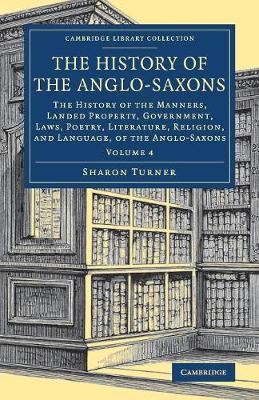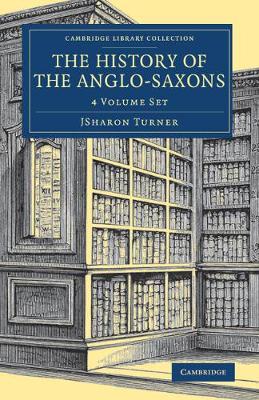Cambridge Library Collection - Medieval History
1 primary work • 2 total works
Volume 4
Sharon Turner (1768–1847) practised as a solicitor in London, specialising in the law of copyright, but devoted his free time to studying Anglo-Saxon literature and history. In 1799–1805 he published this four-volume work, still acknowledged as a turning point in Anglo-Saxon studies and a benchmark in historiography. Turner was elected a fellow of the Society of Antiquaries in 1800, soon after the first volume appeared. His approach of contrasting 'Anglo-Saxon freedom' with 'the Norman yoke' held particular appeal at a time of deteriorating political relations with France. Turner's lasting achievement, however, was to draw public attention to the rich and fascinating material contained in the Anglo-Saxon manuscripts he had studied at the British Museum. This work went through many editions, but was eventually superseded by Kemble's The Saxons in England (1849, also reissued). Volume 4 (1805) is a survey of Anglo-Saxon culture, including domestic life, law, religion, and literature.
Sharon Turner (1768-1847) practised as a solicitor in London, specialising in the law of copyright. As a young man he became enthusiastically involved in the study of Anglo-Saxon and Icelandic literature and history. In 1799-1805 he published this four-volume history, still acknowledged as a turning point in Anglo-Saxon studies and a benchmark in historiography. Turner was elected a fellow of the Society of Antiquaries in 1800, soon after the first volume appeared. His approach of contrasting 'Anglo-Saxon freedom' with 'the Norman yoke' (an idea dating from the seventeenth century) held particular appeal at a time of deteriorating political relations with France. Turner's lasting achievement, however, was to draw public attention to the rich and fascinating material contained in the Anglo-Saxon manuscripts he had studied at the British Museum. This work went through many editions, but was eventually superseded by Kemble's The Saxons in England (1849, also reissued).

